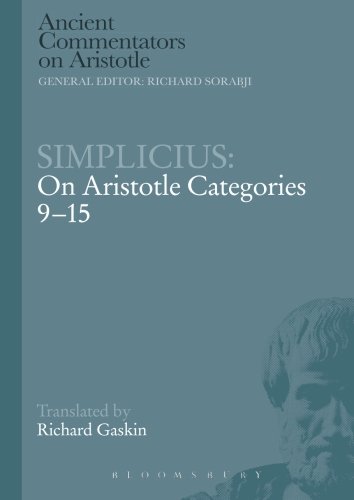

Most ebook files are in PDF format, so you can easily read them using various software such as Foxit Reader or directly on the Google Chrome browser.
Some ebook files are released by publishers in other formats such as .awz, .mobi, .epub, .fb2, etc. You may need to install specific software to read these formats on mobile/PC, such as Calibre.
Please read the tutorial at this link: https://ebookbell.com/faq
We offer FREE conversion to the popular formats you request; however, this may take some time. Therefore, right after payment, please email us, and we will try to provide the service as quickly as possible.
For some exceptional file formats or broken links (if any), please refrain from opening any disputes. Instead, email us first, and we will try to assist within a maximum of 6 hours.
EbookBell Team

4.8
14 reviewsAristotle classified the things in the world into ten categories: substance, quantity, quality, relative, etc. Plotinus, the founder of Neoplatonism, attacked the classification, accepting only these first four categories, rejecting the other six, and adding one of this own: change. He preferred Plato's classification into five kinds which included change.
In this part of his commentary, Simplicius records the controversy on the six categories which Plotinus rejected: acting, being acted upon, being in a position, when, where, and having on. Plotinus' pupil and editor, Porphyry, defended all six categories as applicable to the physical world, even if not to the world of Platonic Forms to which Platonist studies must eventually progress. Porphyry's pupil, lamblichus, went further: taken in a suitable sense, Aristotle's categories apply also to the world of Forms, although they require Pythagorean reinterpretation. Simplicius may be closer to Porphyry that to lamblichus, and indeed Porphyry's defence established Aristotle's categories once and for all in Western thought. But the probing controversy of this period none the less revealed more effectively than any discussion of modern times the profound difficulties in Aristotle's categorical scheme.